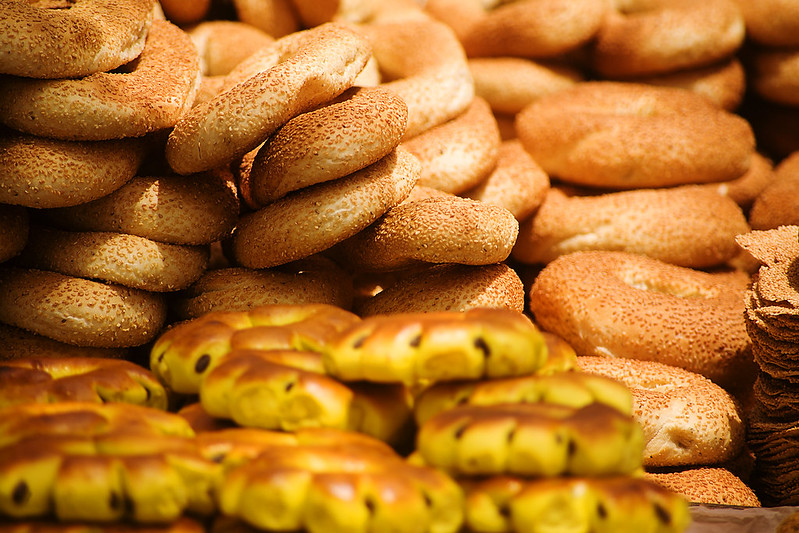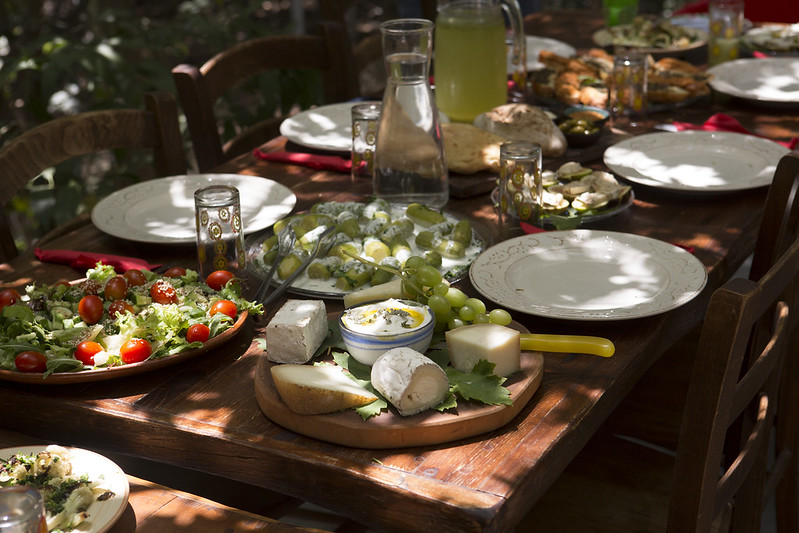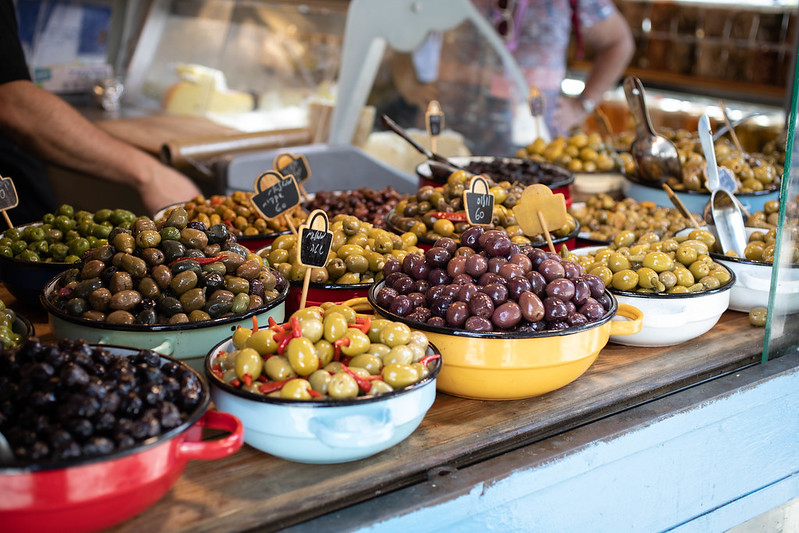Israel, a land steeped in rich history and cultural diversity, is fast becoming a surprising hotspot for gastronomes seeking unique flavors and culinary experiences. From the bustling markets of Tel Aviv to the quaint eateries in Jerusalem’s winding streets, the Israeli culinary scene is a tantalizing fusion of tradition, innovation, and a dash of Middle Eastern magic.
A Tapestry of Flavors
Street food in Israel is more than just a quick bite – it’s an experience that connects people to their roots. Iconic dishes like falafel, a deep-fried ball made from chickpeas or fava beans served in a pita with fresh vegetables and tahini, have become synonymous with Israeli cuisine. Another delight is shawarma, where marinated meat is roasted on a vertical spit and served in a pita or laffa (flatbread) along with a medley of sauces and vegetables.
Farm-to-Table Freshness
In Israel, the farm-to-table trend has surged forward as local chefs and culinary enthusiasts adopt a focus on using regional, seasonal ingredients. The fertile land provides an array of fruits, vegetables, herbs, and spices, all of which skilled chefs adeptly infuse into their dishes. The tastes are rich and genuine, whether it’s the succulent autumnal pomegranates or the aromatic springtime za’atar. Notably, Tel Aviv has earned the title of the ‘Vegan Capital of the World.’

Innovation Meets Tradition
Israeli chefs are celebrated for their innovative spirit, transforming traditional recipes into modern masterpieces. The culinary scene in cities like Tel Aviv, Jerusalem, and Haifa showcases a dynamic blend of contemporary techniques, artful presentations, and a commitment to preserving culinary heritage. From sophisticated fusion restaurants to humble family-owned eateries, the commitment to excellence shines through.
Diversity at the Table
Israeli cuisine embraces the blending of cultures, showcasing influences from Jewish, Arab, Middle Eastern, Mediterranean, and North African traditions. A stroll through vibrant open-air markets like Jerusalem’s Mahane Yehuda Market or Tel Aviv’s Carmel Market reveals a kaleidoscope of colors, aromas, and tastes. Here, stalls laden with aromatic spices, fresh produce, and artisanal products highlight the importance of local ingredients in the nation’s culinary creations.

Seafood Influence
Given its coastal location along the Mediterranean Sea, seafood plays a significant role in Israeli cuisine. Grilled fish, often accompanied by zesty sauces and Mediterranean herbs, is a staple of many restaurant menus.
Culinary Tourism
As the popularity of food tourism continues to rise, Israel has become a sought-after destination for culinary travelers. Cooking classes, food tours, and market visits offer immersive experiences that allow visitors to dive deep into the heart of Israeli cuisine. Exploring bustling markets like Mahane Yehuda in Jerusalem or Carmel Market in Tel Aviv provides a sensory overload of colors, aromas, and tastes.

Explore Israel on a culinary adventure that takes you beyond the ordinary; from savoring traditional dishes in local eateries to experiencing the innovative twists of top-notch chefs, your taste buds are in for the journey of a lifetime. Come hungry and leave with a heart full of stories and flavors that will linger long after you depart this captivating culinary haven!


















